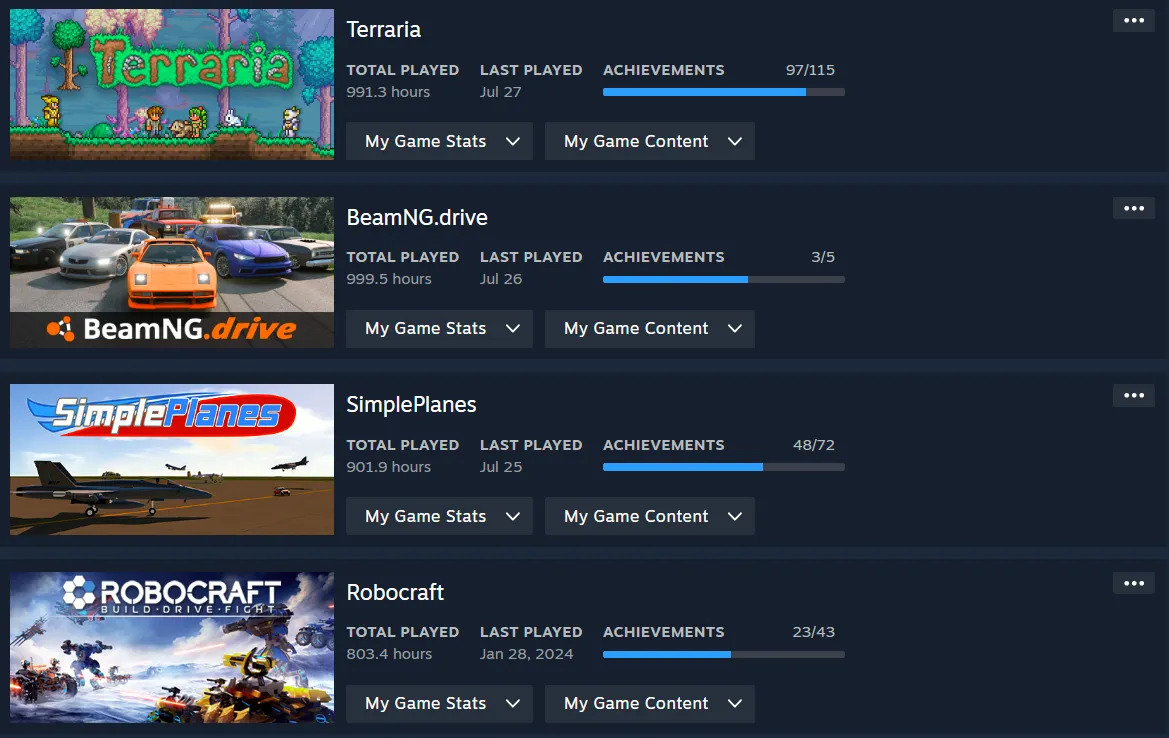I know what I knew—and what I know is that I like to fix things. I’ve fixed, or at least taken apart, things all over my house since I was able to hold a screwdriver—not necessarily things that needed fixing, like TV remotes or my toys. And having done so, I’ve realized I’ve taken apart a lot of things in my life, learning how they work and gaining a reputation for doing just that—taking things apart and not always putting them back together, or not knowing how to.
But as I took apart more remotes or toy cars, I started learning how to put them back together. And that’s the whole point: if you do something enough times, you're bound to get better at it—at least if you’re interested in it. I always liked taking things apart and building things with LEGO or other building toys. You learn basic stuff like center of gravity and how to connect things in a way that’s not just for looks but actually functional.
Even the PC games my brother and I played were about physics and building. Before we ever discovered Steam, we’d play HTML games. One I remember very fondly was When Pigs Fly—an awesome game where we built airplanes out of cardboard to try and fly the longest distance, with a pig as the pilot, of course. When we found Steam, we started playing games like SimplePlanes, where you build aircraft with more realistic physics, and Robocraft, where you’d build robots and take them into online battles.
Those games look old and cheap now, but I can still see the 700+ hours on each of them. And that’s just two—I’d say we played at least 10 games like that regularly.

I still game often, but work needs to be more of a priority now. I started working at a coffee shop with my older brother, and we’d sometimes stay late fixing things—refrigerators, even doing a bit of welding here and there. It was a great first job. After that, I bounced around a couple of food joints before finally landing a job in the field I was really interested in: electric scooters and unicycles.
I’ve been riding unicycles since I was 14, and I had to fix them myself whenever I got a flat or had other issues. Having taken apart a basic electric unicycle many times, I learned how others worked too. To people who didn’t understand them, I looked like a genius.
I worked at one shop for a couple of years, repairing any unicycle that came in—since no one else really knew how they worked or how to diagnose them. I eventually left for higher pay at another store that was more focused on EUCs (electric unicycles) and worked there for about three more years.
Relatively recently, I left that job for personal reasons. I started doing deliveries on my own unicycle and got back in touch with some old customers who run unicycle polo games.
They told me they needed someone who knows how to fix unicycles, since the few repair options nearby were price-gouging them—and they didn’t want to work with those people anymore. They remembered me and my reputation from years ago, and I remembered them. We started talking to see if we could set up some kind of system where they teach kids how to play polo, and I help diagnose and repair their wheels.
I really hope this goes somewhere—it feels like a good idea, and it seems like it has potential.